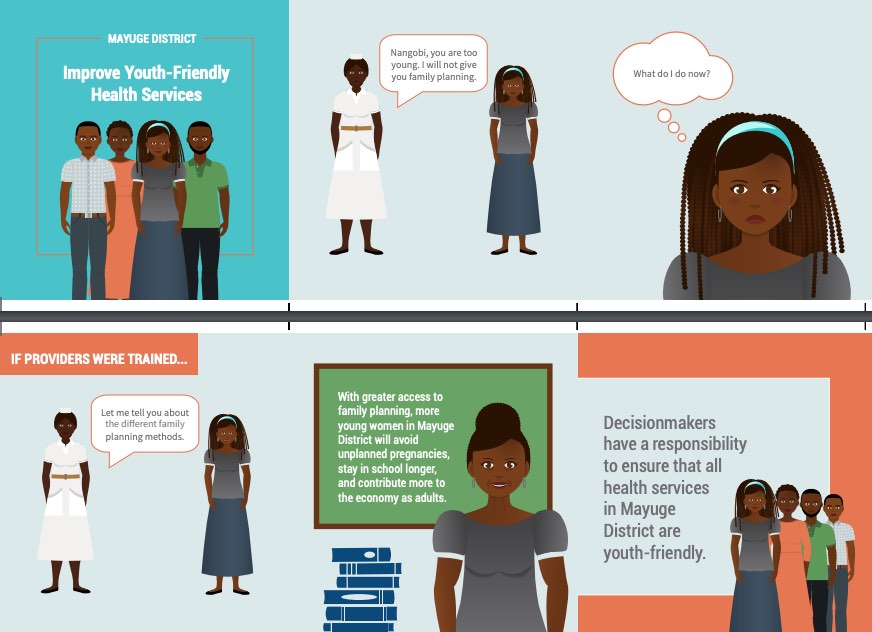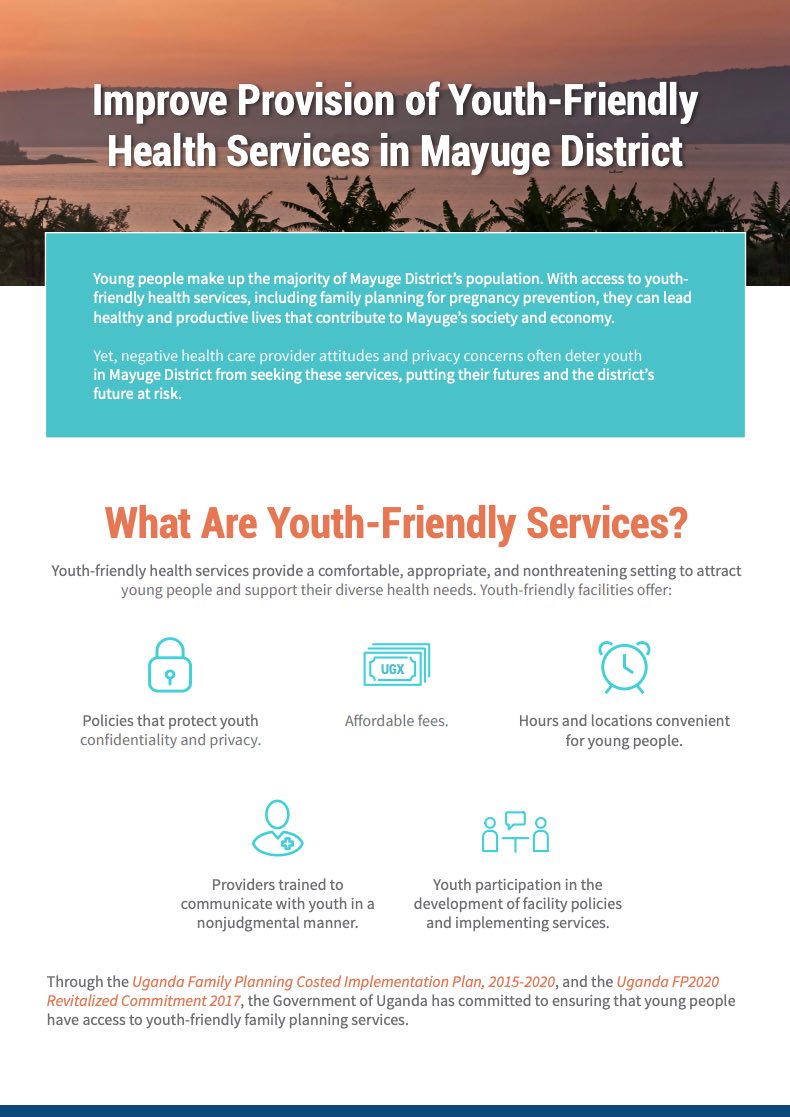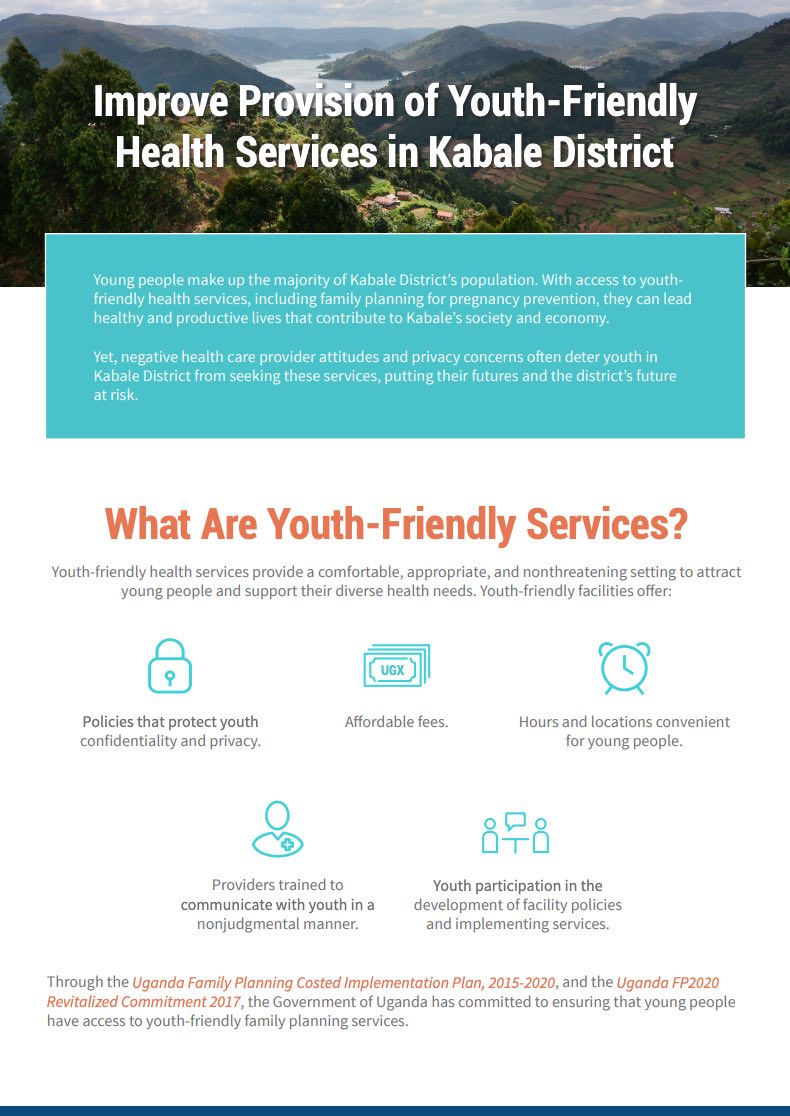607 Search Results Found For : "Дизайн Человека Виктория Джем Рейтинговый Эксперт Дизайн Человека Human Design metahd.ru"

Project: Empowering Evidence-Driven Advocacy
Palm Card. Improve Provision of Youth-Friendly Health Services in Mayuge District
The palm cards highlight barriers that youth face in accessing family planning services and information that meet their unique needs.

Project: Empowering Evidence-Driven Advocacy
Fact Sheet. Improve Provision of Youth-Friendly Health Services in Mayuge District
Young people make up the majority of Mayuge District’s population. With access to youth-friendly health services, including family planning for pregnancy prevention, they can lead healthy and productive lives that contribute to Mayuge’s society and economy.

Project: PACE: Policy, Advocacy, and Communication Enhanced for Population and Reproductive Health
Policy Dialogue Between Youth Leaders and Policymakers on Sustaining Youth Contraceptive Use in West Africa
In many countries, youth ages 15 to 24 have higher rates of contraceptive discontinuation than older women.

We Decide ENGAGE
PRB supports the We Decide project in its critical step of communicating new evidence on the sexual and reproductive health and rights (SRHR) of women and young people with disabilities and the gender-based violence (GBV) that many of them endure.

Project: Empowering Evidence-Driven Advocacy
Fact Sheet. Improve Provision of Youth-Friendly Health Services in Kabale District
Young people make up the majority of Kabale District’s population. With access to youth-friendly health services, including family planning for pregnancy prevention, they can lead healthy and productive lives that contribute to Kabale’s society and economy.

Project: Empowering Evidence-Driven Advocacy
Expanding Access to Youth-Friendly Family Planning Services in Uganda
Focus groups and interviews conducted by Population Reference Bureau (PRB) and the International Youth Alliance for Family Planning (IYAFP) in Kampala, Mayuge, and Kabale districts in 2018 revealed that despite strong policies dedicated to expanding youth-friendly contraceptive services in Uganda, these services are not readily available.

Demystifying Big Data for Demography and Global Health
Combining big data with traditional data can generate richly detailed and valuable analyses for global health professionals, but its use comes with drawbacks.
